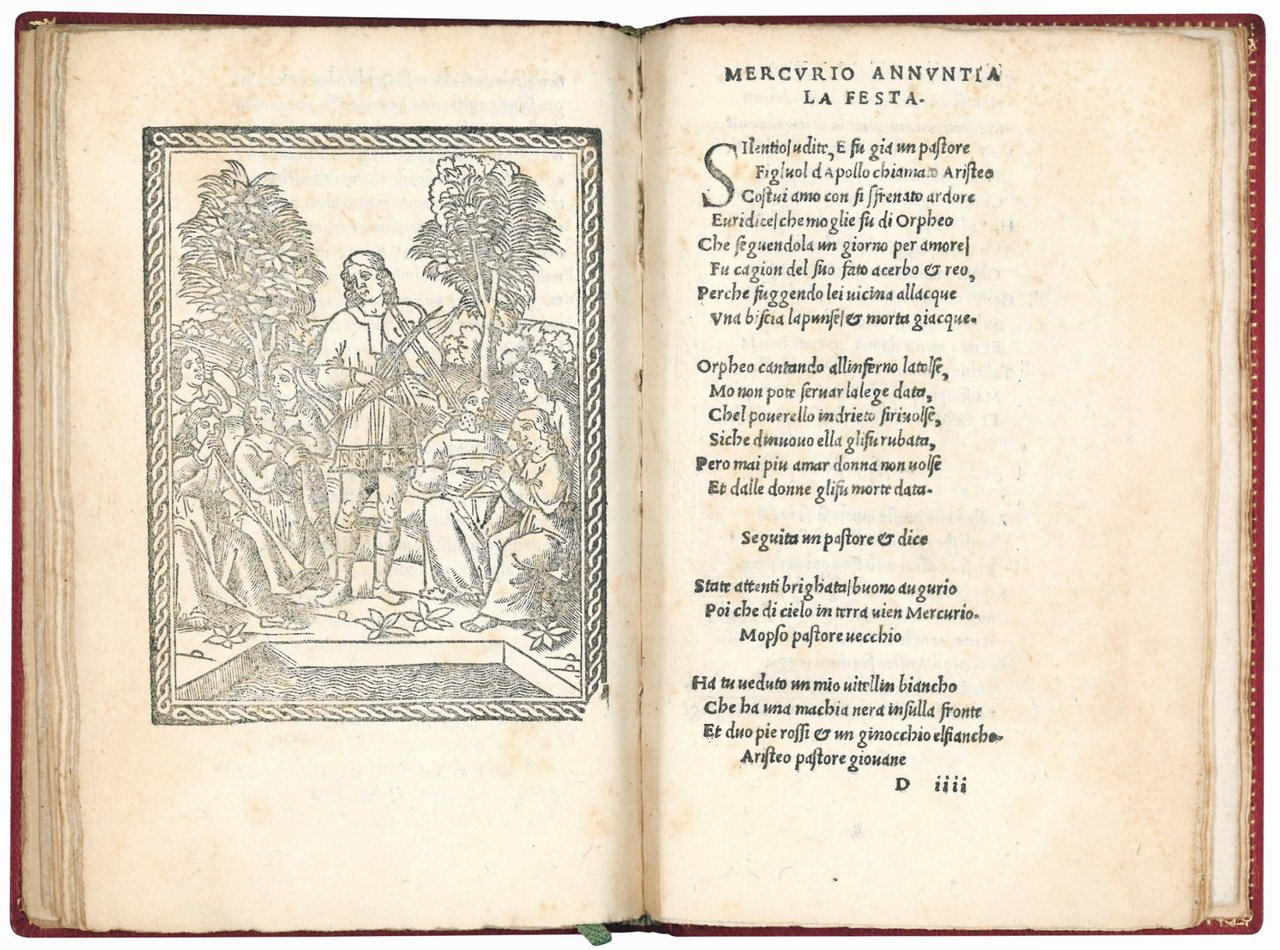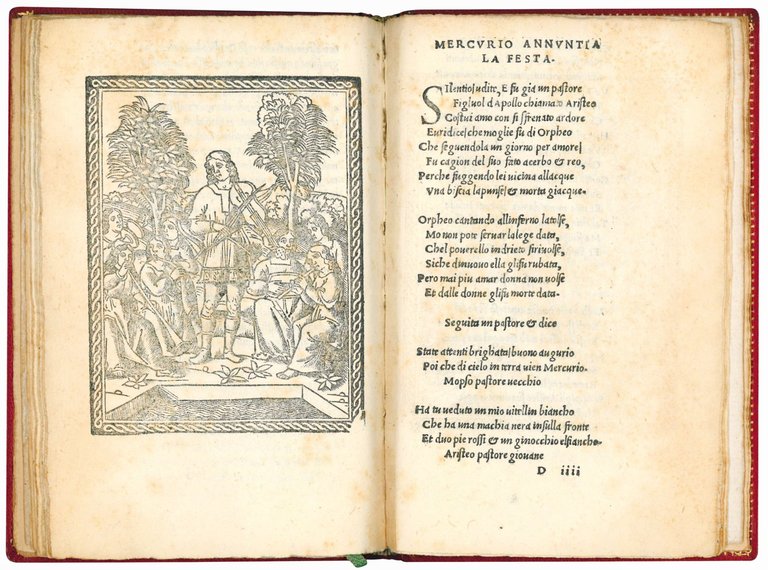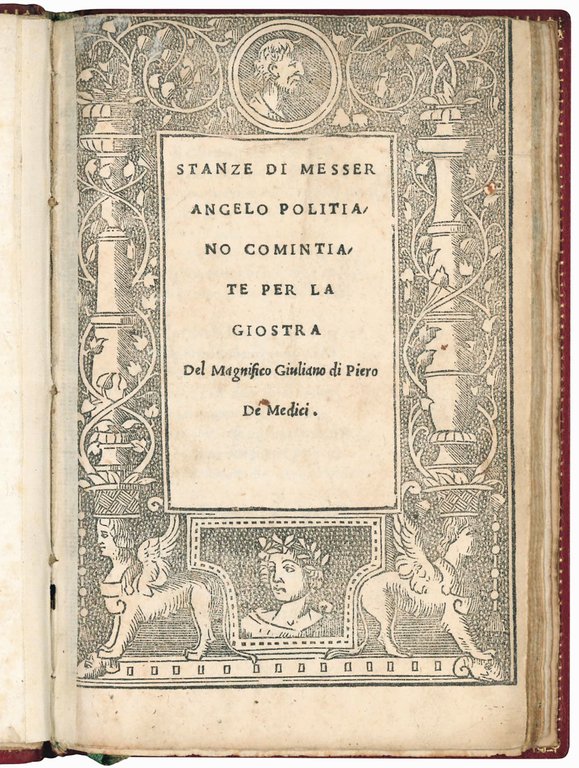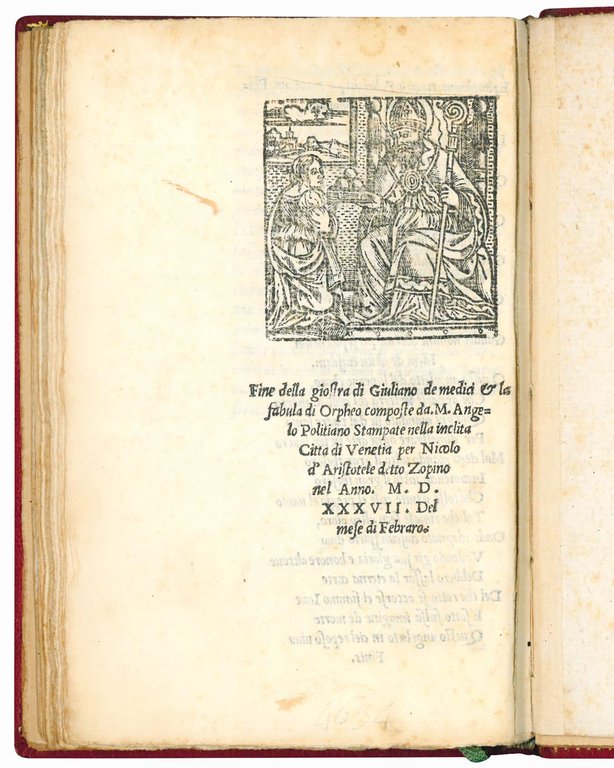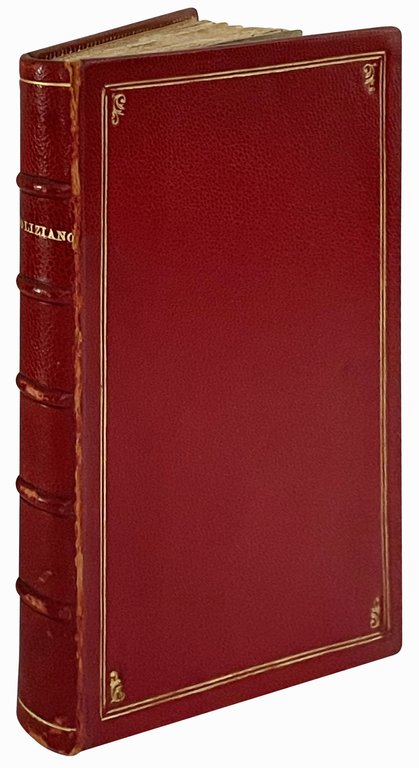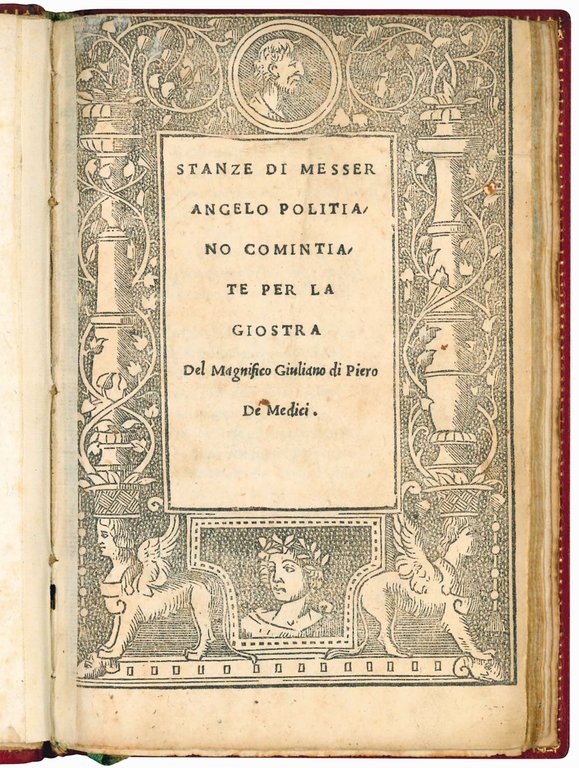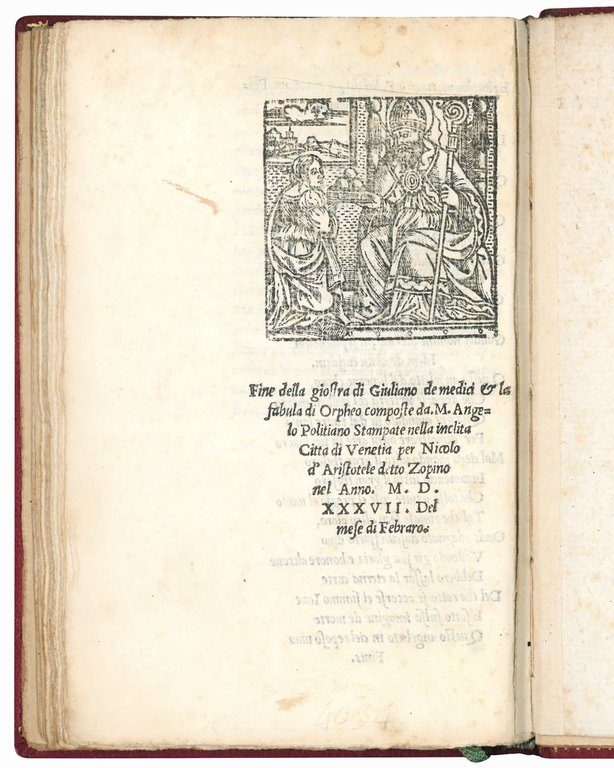Stanze di Messer Angelo Politiano comintiate per la Giostra del Magnifico Giuliano di Piero de Medici. Colophon: Stampate nella inclita Città di Venetia per Nicolo d'Aristotele detto Zopino nel Anno M.D.XXXVII. del mese di Febraro
Stanze di Messer Angelo Politiano comintiate per la Giostra del Magnifico Giuliano di Piero de Medici. Colophon: Stampate nella inclita Città di Venetia per Nicolo d'Aristotele detto Zopino nel Anno M.D.XXXVII. del mese di Febraro
Metodi di Pagamento
- PayPal
- Carta di Credito
- Bonifico Bancario
- Pubblica amministrazione
- Carta del Docente
Dettagli
- Anno di pubblicazione
- 1537 (February)
- Luogo di stampa
- Venezia
- Autore
- POLIZIANO, Angelo (1454-1494)
- Editori
- Niccolò Zoppino
- Soggetto
- Quattro-Cinquecento
- Stato di conservazione
- Buono
- Lingue
- Italiano
- Legatura
- Rilegato
- Condizioni
- Usato
Descrizione
8vo (152x99 mm). [39 of 40] leaves. Collation: A-E8. Lacking E8, a blank. Title within a woodcut ornamental border. Printer's device and colophon on l. E7v. The Fabula di Orpheo begins on l. D4r and is preceded by a full-page woodcut illustration of Apollo playing the violin among the Muses. At the end are a letter by Alessandro Sarti to Antonio Galeazzo Bentivoglio and an Epitaphium Angeli Policiani per Iacobum Philippum pellibus nigris Troianum. 20th-century red morocco gilt (joints and spine worn). Upper margin of the title-page border slightly trimmed, gutter of the title page reinforced, some light foxing and browning. Overall a good copy bearing some contemporary reading signs and a manuscript note on l. C2r.
Third Zoppino edition, a reprint of the 1521 edition. Overall this is about the fifteenth edition of these extremely popular texts of the Italian Renaissance poetry, which were first printed under the title Cose volgare del Politiano (Bologna, 1494) and then frequently reprinted also under the title La giostra di Giuliano de Medici.
Poliziano's early masterpiece is the Stanze, a vernacular poem in octaves composed between 1475 and 1478. The inspiration for this short poem comes from contemporary Florentine life. The two protagonists are based on real people, Giuliano de' Medici, brother of Lorenzo il Magnifico, and Simonetta Cattaneo, wife of Amerigo Vespucci and the subject of the platonic love of Giuliano and Lorenzo. The joust fought and won by Giuliano on 28 January 1475 and the premature death of Simonetta, who died on 26 April 1476, were also real events. The Stanze remains unfinished, ending at the 46th octave of Book 2, after the protagonist's fateful dream.
The Favola di Orfeo, on the other hand, is a short play written in Mantua in 1480. The theme of the ‘Fable of Orpheus' is similar to that of the Stanze: here, too, a dream of earthly happiness clashes against the inescapable forces of Fortune and Death. However, in this case, Poliziano does not base his work on a real event; instead, he chooses the myth of Orpheus and Eurydice as his subject. Thanks in part to a later anonymous remake known as Orphei tragoedia, the ‘Fable of Orpheus' enjoyed considerable success and circulation, and is regarded as an early example of a dramatic representation of a secular subject, as well as the progenitor of the pastoral play genre.
Edit 16, CNCE41210; Sander, 5823; Baldacchini, 367.
